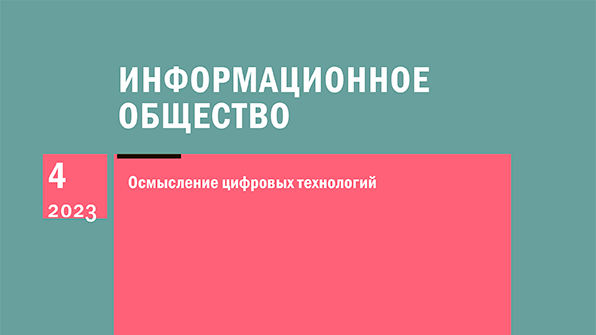The issue is dedicated to the memory of Viktor Glushkov in connection with his 100th birthday.
In a traditional address to readers, editor-in-chief Tatiana Ershova writes:
On August 24, 1923, in Rostov-on-Don, the pioneer of computer science and cybernetics, the ideologist of the digital state, Viktor Mikhailovich Glushkov was born in the family of a mining engineer.
Based on the works of N. Wiener, K. Shannon, A. I. Kitov, A. A. Lyapunov and other scientists, V. M. Glushkov formed his own understanding of cybernetics as a scientific discipline, which he interpreted broadly – as a science of general patterns, principles and methods of information processing and management of complex systems. This understanding was reflected in the world’s first “Encyclopedia of Cybernetics”, prepared on the initiative of V. M. Glushkov and published in 1974 under his editorship.
V. M. Glushkov paid much attention to the creation of automated control systems (ACS), was the main ideologist and one of the main creators of the ACS industry in the USSR. Applied developments of V. M. Glushkov and his school covered a wide range of areas of application.
In 1962, on the instructions of A. N. Kosygin, then the first deputy chairman of the Council of Ministers of the USSR, V. M. Glushkov began the development of a project for the National Automated System for Collecting and Processing Information for Accounting, Planning and Management of the National Economy (OGAS). He proposed the concept of OGAS as a single system that implements the principles of program-target management and intersectoral balance using scenario modeling. In fact, it was a prototype of the digital state that the USSR could become. But the OGAS project met with sharp objections from the leadership of the Central Statistical Bureau of the USSR, then it was being revised for a long time, but has never been implemented. There were many reasons for this, and the main one was the resistance of the social system itself, which was not ready for a breakthrough development of this kind.
At the dawn of the information society, he promoted the ideas of artificial intelligence and digital immortality. His students and followers successfully develop his ideas and are engaged in research on structural pattern recognition, methods of syntactic analysis of images and speech signals, methods of structural analysis of scenes in the field of view of robots, are engaged in neurocomputer technologies and medical information systems. However, as before, many ideas of V. M. Glushkov are waiting for their implementation.
For his great contribution to the development of science and technology and the application of these achievements, V. M. Glushkov received well-deserved recognition and a large number of awards both at home and abroad. He was active internationally, and one of his activities was the role of adviser to the UN Secretary-General on cybernetics and computing and their use in developing countries.
We dedicate this issue of the journal to the blessed memory of V. M. Glushkov, an outstanding son of our people.
